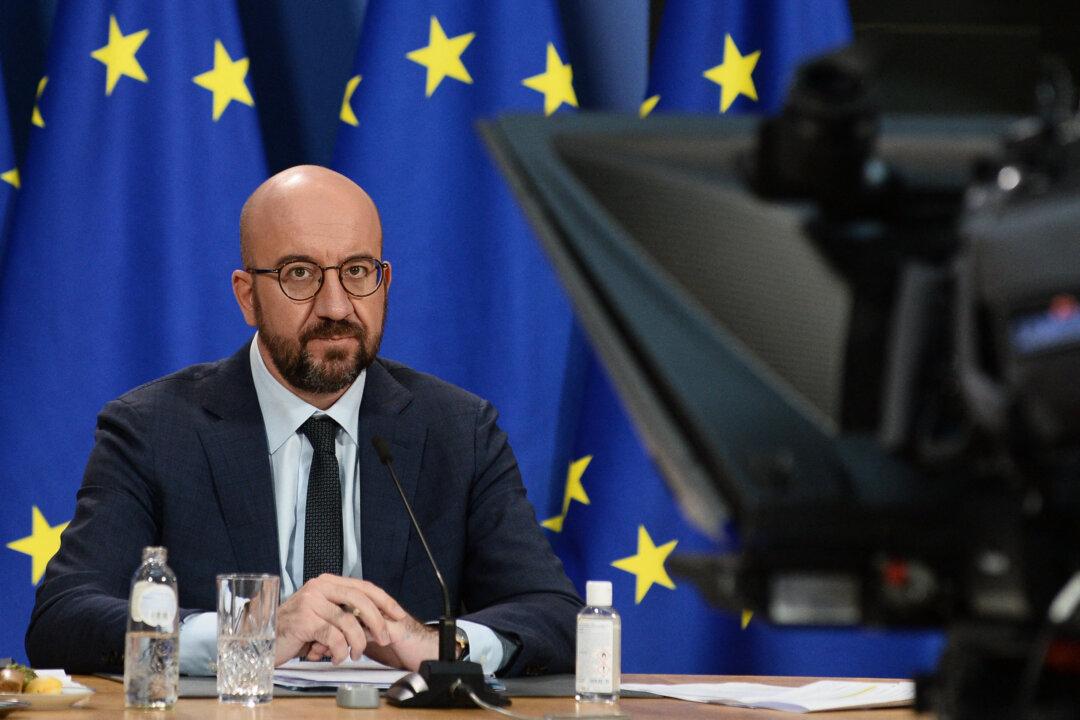Leadership from the European Union (EU) and China met for a virtual summit April 1, amid increasing tensions over the Chinese Communist Party’s (CCP) tacit support of Russia’s invasion of Ukraine.
“We called on China to end the war in Ukraine,” said EU President Charles Michel during a press briefing after the meeting. “China cannot turn a blind eye to Russia’s violation of international law.”




